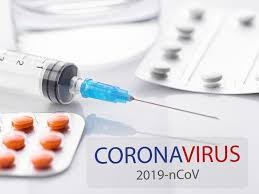In an open label, randomised, phase 2 clinical trial, triple combination of interferon beta-1b (an injectable interferon), lopinavir–ritonavir (oral protease inhibitor) and ribavirin (oral nucleoside analogue) were shown safe and superior to monotherapy with lopinavir‑ritonavir. This triple combination shown efficacy in shortening virus shedding, alleviating symptoms, and facilitating discharge of COVID-19 patients with mild to moderate severity.
The development of a new antiviral medicine to fight against coronavirus ‘takes years’ for clinical use before its approval by national regulatory bodies. Hence, a highly specific and active broad-spectrum antiviral drugs already existing in the market are always needed for any novel emerging infectious disease like coronavirus.
Why Triple Combination Therapy is Important?
For tackling the coronavirus disease 2019 (COVID-19) pandemic, effective therapy with antiviral medicinal products is important. Till now, no specific treatment with antiviral medicines has been recommended because of insufficient evidence from randomised clinical trials. The viral load of COVID-19 peaks at the time of symptoms presentation. The combination of multiple antiviral drugs was proven more effective than single drug treatments in influenza patients admitted to hospital with a high viral load at presentation. The viral load profile of COVID-19 is similar to that of influenza,
which has a high viral load at the time of initiation of anti-influenza treatment. This attracted the researchers to study on antiviral drug combinations for COVID-19 treatment.

Hung IF et al., conducted a phase 2 multicentre, open-label, randomised trial to establish whether a combination of three modestly active antiviral drugs against SARS-CoV-2 can improve the viral load profile and clinical parameters in COVID-19 adult patients requiring hospital admission.
Randomisation of Patients: All the eligible adult COVID-19 patients were assigned to a serial number by the study coordinator and each serial number was linked to a computer-generated randomisation list assigning the antiviral treatment regimens.
Randomisation done simply in a 2:1 ratio with no stratification by randomly assigning the patients to either the triple combination lopinavir–ritonavir, ribavirin, and interferon beta-1b group or the control group (lopinavir–ritonavir only).
This study was conducted between 10-Feb-2020 to 20-Mar-2020 in Hong Kong. Total 144 COVID-19 positive patients were screened. 17 patients were excluded (9 patients did not qualify for inclusion criteria and 8 patients did not sign the informed consent). Finally, 127 patients were found eligible for the study.
Out of 127 COVID-19 positive patients enrolled, 86 patients were randomly assigned to triple combination therapy group and 41 patients were assigned to control group (comprising treatment with only one antiviral drug). One patient from control group stopped treatment on day 7 due to adverse drug event. Clinical improvement was significantly better in the combination group, with a significantly shorter time to complete alleviation of symptoms.
With respect to virological outcome, the combination treatment was associated with significantly shorter time to negative viral load in all specimens (samples for analyzing virus growth which included nasopharyngeal swab, posterior oropharyngeal saliva, throat swab and stool samples). All urine samples tested negative for viral load. The triple combination was found effective in shedding of SARS-CoV-2 (coronavirus), when given within 7-days of symptoms onset and most patients treated with the triple combination were RT-PCR (Reverse transcription polymerase chain reaction for detection of coronavirus) negative in all specimens. No patients died during the study and the adverse drug events/reactions were generally mild and self-limiting. Treatment withdrawn in one patient due to biochemical hepatitis. Early treatment with a triple combination of modestly active antivirals is appropriate for the treatment of COVID-19 because the viral load of SARS-CoV-2 peaks at around the time of symptom onset. Authors suggested that interferon beta-1b is the key component in the triple combination therapy.
Limitation of this study: Absence of critically ill patients (severe cases of COVID-19 positive patients). Authors highlighted that there is a need for larger phase-3 trials to examine and establish the effectiveness of the triple combination therapies against severe cases.